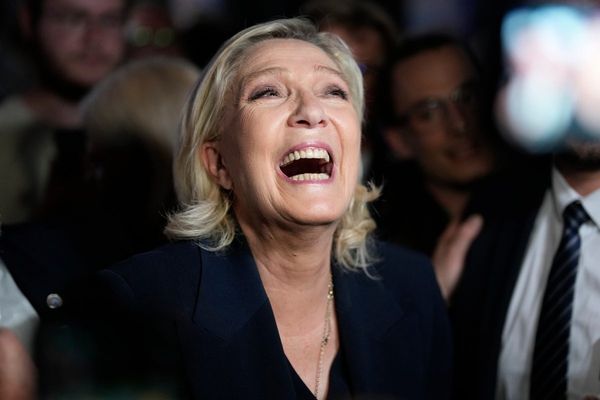The Supreme Court on March 7 refused to entertain a plea moved by the Enforcement Directorate (ED) challenging a Calcutta High Court order, in which guidelines were issued to probe agencies for not disclosing to the public or media, before the filing of a charge sheet, the details of a probe related to any person, an accused, a suspect or witness insofar as Rujira Banerjee is concerned.
The High Court order had come on a plea moved by Ms. Rujira Banerjee, the wife of Trinamool Congress (TMC) MP Abhishek Banerjee, in which she has alleged that Central probe agencies and the media are indulging in her character assassination and maligning her family by regularly publishing information regarding the probe being carried out by the agencies, including the ED, regarding alleged financial and other scams.
A Bench of Justices Hrishikesh Roy and Prashant Kumar Mishra told Additional Solicitor General S.V. Raju, who appeared in the matter on behalf of the ED, that since the agency’s plea is against an interim order of the High Court, the Supreme Court is not inclined to entertain it.
Mr. Raju contended that it is virtually a final order as guidelines have been issued and ultimate relief has been granted to Ms. Banerjee by the interim order.
He sought a direction for a stay of the guidelines.
The Bench told Mr. Raju that the court would either dismiss the ED’s plea or the agency can withdraw it as it is against an interim order of the High Court.
Mr. Raju then agreed to withdraw the plea, a request that was allowed by the court. On October 17 last year, the High Court issued a slew of guidelines and directed the probe agencies and media outlets to strictly adhere to those.
It had said insofar as Ms. Banerjee is concerned, “the investigating agencies [in the present case, the ED] shall not disclose to the public or the media the circumstances, reasons and/or details of the interrogation, raids and search of any particular person, be he/she an accused, a suspect or a witness”.
It had said investigating agencies in general, and the ED in particular, will not involve or be accompanied by mediapersons during any raid or interrogation, search-and-seizure procedure at any point of time and also not disclose prior information of such raids, interrogations, searches and seizures.
The High Court had said the media, while reporting news items, will ensure that the information disseminated is objective, accurate and can be corroborated by concrete materials and sources.
“The exact source may or may not be disclosed in the news item but the editors/board of editors/management of the particular media entity must be able to corroborate it by cogent material, if so required by any court of law or investigating agency or other body authorised to do so in law, including self-regulating authorities in respect of the media,” the High Court had said.
It had further said even if media articles contain opinions and investigative write-ups or other literature in the form of entertainment, where particular persons are stigmatised or ridiculed or aspersions or insinuations are made in any manner, the names of the authors of such articles will have to be clearly disclosed with the articles.
The High Court had said the media, during investigation and before the filing of a charge sheet, will not publish photographs of any person linking him or her to the investigation in news items reporting about the probe or any facet of it.
The media was further directed not to publish or broadcast or telecast live video, audio or print footage of the process of search and seizure, raid or interrogation at any point of time.
The court directed that these guidelines will be followed by the investigating agencies, in particular, the ED and all media houses till January 15, 2024 or until a further order, whichever is earlier.
Ms. Banerjee had moved the High Court on the ground of right to privacy and alleged that fair trial is being affected.
The High Court had observed that even if Ms. Banerjee is not an Indian citizen but only an OCI (Overseas Citizenship of India) card holder, she is equally entitled to seek protection of her fundamental rights as any full-fledged citizen of India.
Observing that by social and judicial evolution, certain additional rights have been read into the right to life and personal liberty as its essential and implicit components, the court said “right to privacy is one such right”.
Mr. Abhishek Banerjee is the nephew of West Bengal Chief Minister and TMC supremo Mamata Banerjee.







